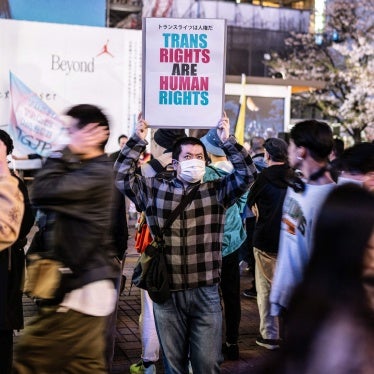“Everyone has a fundamental right to be recognized in their gender,” the Delhi High Court declared this week in a short but powerful judgment that vindicates the rights of India’s transgender people.
The court stepped in to protect Shivy, a 19-year-old transgender man studying neurobiology in California, who was being mistreated by his parents during a family holiday to India. Shivy said his parents confined him to his grandparents’ home in Agra, took away his Indian passport and United States residency card, and compelled him to enroll in a university in Agra. When he ran away, his parents reported him to the police, who searched for him and reportedly harassed activists who had assisted him.
The court judgment came shortly after Shivy’s parents had returned his travel documents and said they would keep funding his college education in the US. Justice Siddharth Mridul took the opportunity to highlight transgender peoples’ fundamental right to dignity and self-determination.
“The time has come for us to mainstream the transgender community,” he wrote. His words reflect the recent and emerging legal changes to bolster the rights of transgender people in India.
In April 2014, the Indian Supreme Court, in NALSA v. India, ruled that transgender people should be recognized as a third gender and enjoy all fundamental rights and benefits in education and employment.
The Rights of Transgender Persons Bill is under consideration by the lower house of parliament. The law, if passed, would bring India more closely in line with international best practices for legal gender recognition.
The court decision, which quotes liberally from Indian poets and philosophers, not only reinforces recent progress on transgender rights, but also cites the “inalienable rights” enshrined in India’s constitution. In finding that “gender identity and sexual orientation are fundamental to the right of self-determination, dignity and freedom,” the ruling poses a challenge to another Supreme Court decision, in December 2013, upholding section 377 of the penal code, which prescribes life in prison for “carnal intercourse against the order of nature.”
But protecting transgender people’s rights requires more than legal change. Even the progressive Delhi High Court judgment used mistaken gender pronouns – referring to Shivy as “she.”
Reflecting on Shivy’s situation, the court proclaimed: “All’s well that ends well.” But all won’t be well unless authorities in India fully enforce the 2014 Supreme Court ruling to protect the rights of transgender people and help end the discrimination they face daily.









